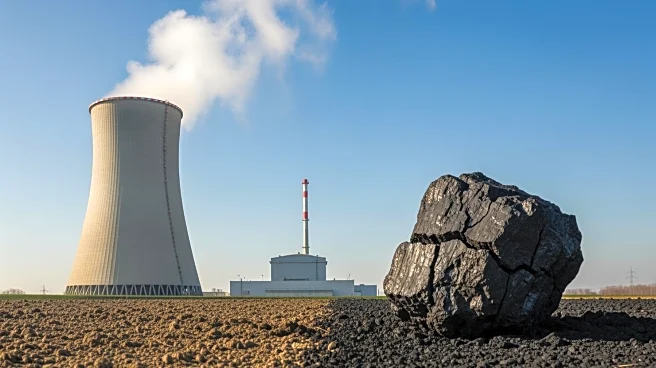What's Happening?
South Africa is advancing its nuclear energy capabilities with plans to extend the lifespan of the existing Koeberg plant to 2045 and develop a new 4 GW facility at Duynefontein near Cape Town. The government
aims to revive the Pebble Bed Modular Reactor program and develop new nuclear waste management sites. The Integrated Resource Plan allocates R2.23 trillion ($131 billion) for energy investment by 2042, positioning nuclear power as a central strategy to reduce coal dependence. South Africa's technical and regulatory expertise serves as a reference point for other African nations exploring nuclear energy.
Why It's Important?
The expansion of nuclear energy in South Africa is crucial for reducing reliance on coal, which is a significant contributor to carbon emissions. By investing in nuclear power, South Africa aims to diversify its energy sources and enhance energy security. This move is expected to set a precedent for other African countries facing electricity shortages and climate commitments. The investment in nuclear infrastructure could also stimulate economic growth and create job opportunities in the energy sector.
What's Next?
South Africa's plans to expand its nuclear capabilities will likely influence other African nations to pursue similar strategies. Countries like Kenya, Uganda, and Rwanda are in early stages of nuclear development, and South Africa's progress could provide a model for these nations. The continent's growing interest in nuclear energy may lead to increased international collaborations and investments, particularly with countries like Russia and China, which have been involved in nuclear projects across Africa.
Beyond the Headlines
The shift towards nuclear energy in Africa raises ethical and environmental considerations, particularly regarding nuclear waste management and the potential risks associated with nuclear power. As countries develop their nuclear programs, they must address these challenges to ensure safe and sustainable energy production. Additionally, the move away from coal could have long-term implications for global climate change efforts, as Africa contributes to reducing global carbon emissions.











